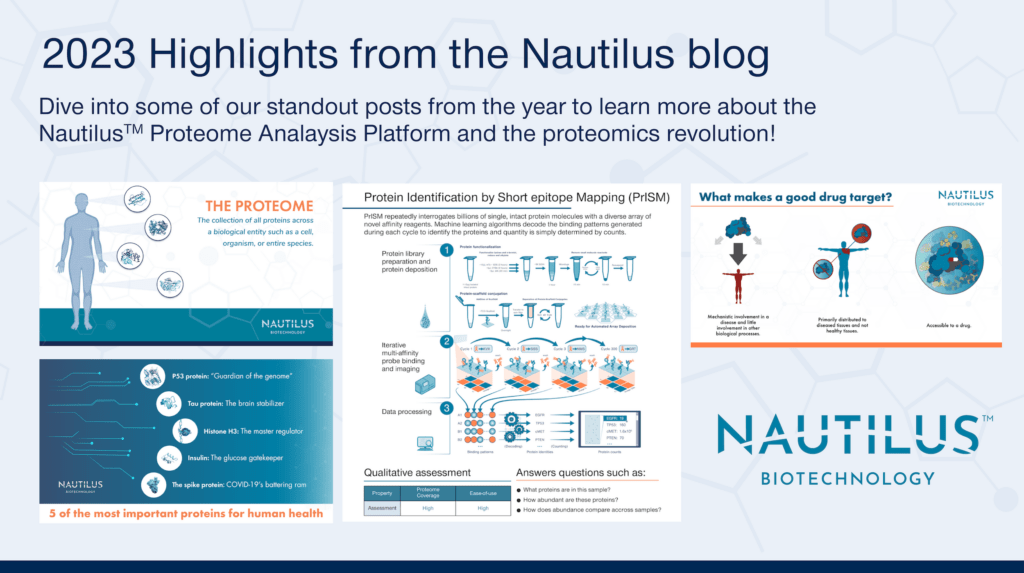
2023 has been a year of growth on the Nautilus blog. We’ve rapidly ramped from just over 1,000 views/month in January to over 3,000 views/month in November. Our posts are written with the goals of showing you how the NautilusTM Proteome Analysis Platform can spark a proteomics revolution and revealing the incredible applications and advances that can come from that revolution.
Below we highlight 4 blog posts that stood out in 2023. These should give you a good feel for the types of content we provide. If you like what you see, please subscribe!
What is the Proteome?
Whether you’re hearing the word proteome for the first time or you’re a seasoned biologist, this post provides a description of the proteome, how it’s studied, and how research into the proteome can be applied. It also provides additional resources you can use to dig deeper. We hope this post piques your interest in the vast potential of the proteome and gets you excited about the incredible possibilities afforded by the proteomics revolution.
Next-generation proteomics technologies – Protein Identification by Short-epitope Mapping (PrISM)
While current proteomics technologies are impactful, they aren’t accessible or comprehensive enough to spur a proteomics revolution. In our “Next-generation proteomics technologies” series, we highlight up-and-coming technologies that aim to put the proteome in reach of all researchers. In this post, we cover the methodology underlying our own next-generation proteomics platform, Protein Identification by Short-epitope Mapping or PrISM. This methodology is designed to give all researchers the ability to efficiently quantify proteins across the broad dynamic range of the proteome with single-molecule resolution and an integrated workflow from sample prep to insight.
These are some of the most important proteins in the human body
To remind you why studying the proteome is key to rapid advances in healthcare and beyond, this post covers just 5 proteins with incredible impacts on the human body. There are ~20,000 additional genetically encoded proteins in the human body and many of them are understudied. Thus, we’re only beginning to understand the true power of proteins. Next-generation proteomics platforms are poised to help researchers reveal much more about the role of proteins in controlling biological function.
Using proteomics to improve the drug development process
This is one of our many posts covering applications of proteomics. These are written to give you a more practical understanding of the ways next-generation proteomics can impact basic and applied research. Here we cover how the NautilusTM Proteome Analysis Platform is designed to help identify better drug targets and guide the development of more effective therapeutics.
Subscribe to the Nautilus blog for more
There is much more to see and learn on the Nautilus blog. Subscribe here to have new posts delivered straight to your inbox!
MORE ARTICLES


